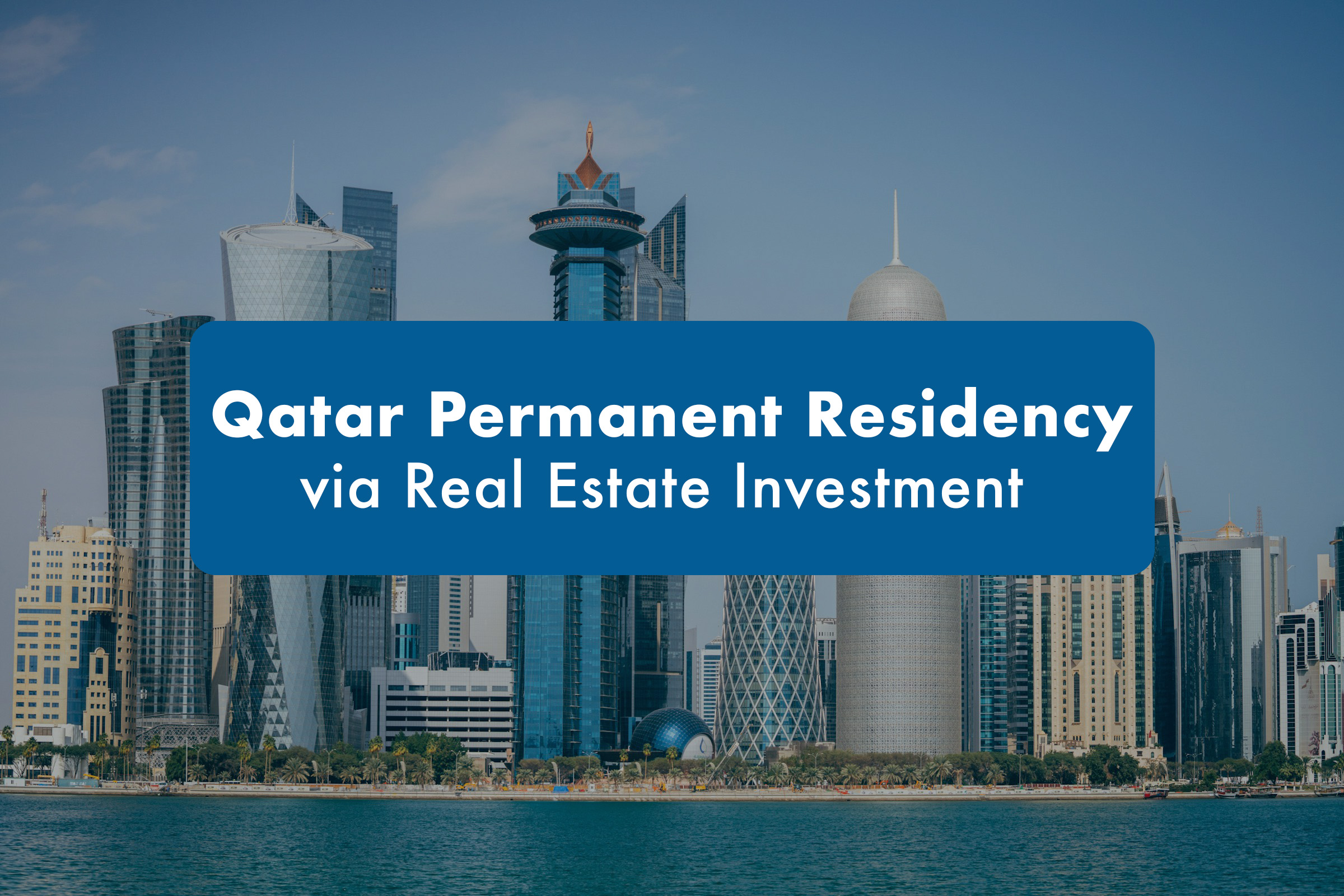
Qatar Permanent Residency via Real Estate Investment
August 09, 2025
Overview
Qatar offers a structured pathway to residency through real estate investment, aligning with its goal to attract foreign investment and diversify its economy. Two principal tiers exist:
- Temporary Residency: Requires investment of approximately QAR 730,000 (around USD 200,000) in designated freehold zones like The Pearl, Lusail City, West Bay, and Al Khor Resort. This grants a renewable residency permit without the need for a local sponsor.
- Permanent Residency: Demands investment of about QAR 3,650,000 (around USD 1,000,000) in properties within the same eligible areas, offering a Permanent Residency card with enhanced benefits.
Investment Zones & Legal Foundations
Non-Qataris may purchase real estate in about 25 designated areas, as specified by Law No. 16 of 2018 and a Council of Ministers’ resolution. These include residential units, villas, commercial offices, and shops. Ownership grants both bare ownership and usufruct/usage rights (e.g., leasing), though construction rights in vacant land must begin within four years.
Benefits of Residency via Real Estate
- Residency Independence & Flexibility: Holders enjoy self-sponsorship, freedom of residence and movement, and can re-enter Qatar during permit validity without additional permissions.
- Public Services Access: Permanent residents gain access to governmental healthcare and education systems.
- Family Inclusion: Investors can sponsor spouses, dependent children (typically up to age 18, with possible extensions), and possibly parents depending on policy.
- Freedom to Invest & Conduct Business: Preference no longer depends on Qatari partners—residency holders can launch businesses and invest in various economic sectors.
- Property Rights & Income Potential: Owners may legally buy, lease, or sell property, subject to maintaining investment thresholds and residency.
Application Process & Residency Conditions
- Select and purchase property in one of the designated freehold zones, through licensed developers or brokers.
- Apply through the Ministry of Interior (MOI) via the e-government portal or via Metrash, submitting required documents—property title, passport, health certificate, police clearance, proof of funds, etc.
- Processing Timeline: Typically takes 4 to 8 weeks, though some sources suggest faster processing (30–90 days) depending on documentation completeness.
- Residency Validity: Temporary permit: renewable, typically every 5 years per more recent sources. Permanent Residency: long-term card, potentially indefinite with renewal.
- Residency Maintenance: A minimal physical presence requirement of ~90 days per year may apply, especially for permanent residency.
Additional Context & Alternatives
- Real Estate Market Momentum: Qatar’s property sector remains robust, with QAR 8.16 billion in transactions in H1 2024, driven by reforms and demand in key zones.
- Alternative PR Paths: Non-investment routes include long-term continuous residency (20 years for those born abroad, or 10 years if born locally), language proficiency, income thresholds, and good conduct—all capped at 100 approvals per year.
- New Entrepreneurship Category (2025): Requires QAR 250,000 investment plus an endorsed business plan—targeting innovators aligned with Qatar’s National Vision 2030.
Final Thoughts
Investing in real estate for residency in Qatar presents a compelling opportunity—combining lifestyle advantages, financial flexibility, and long-term stability. Whether you're pursuing a temporary permit or aiming for permanent residency, the program offers clear benefits through a transparent legal framework.
